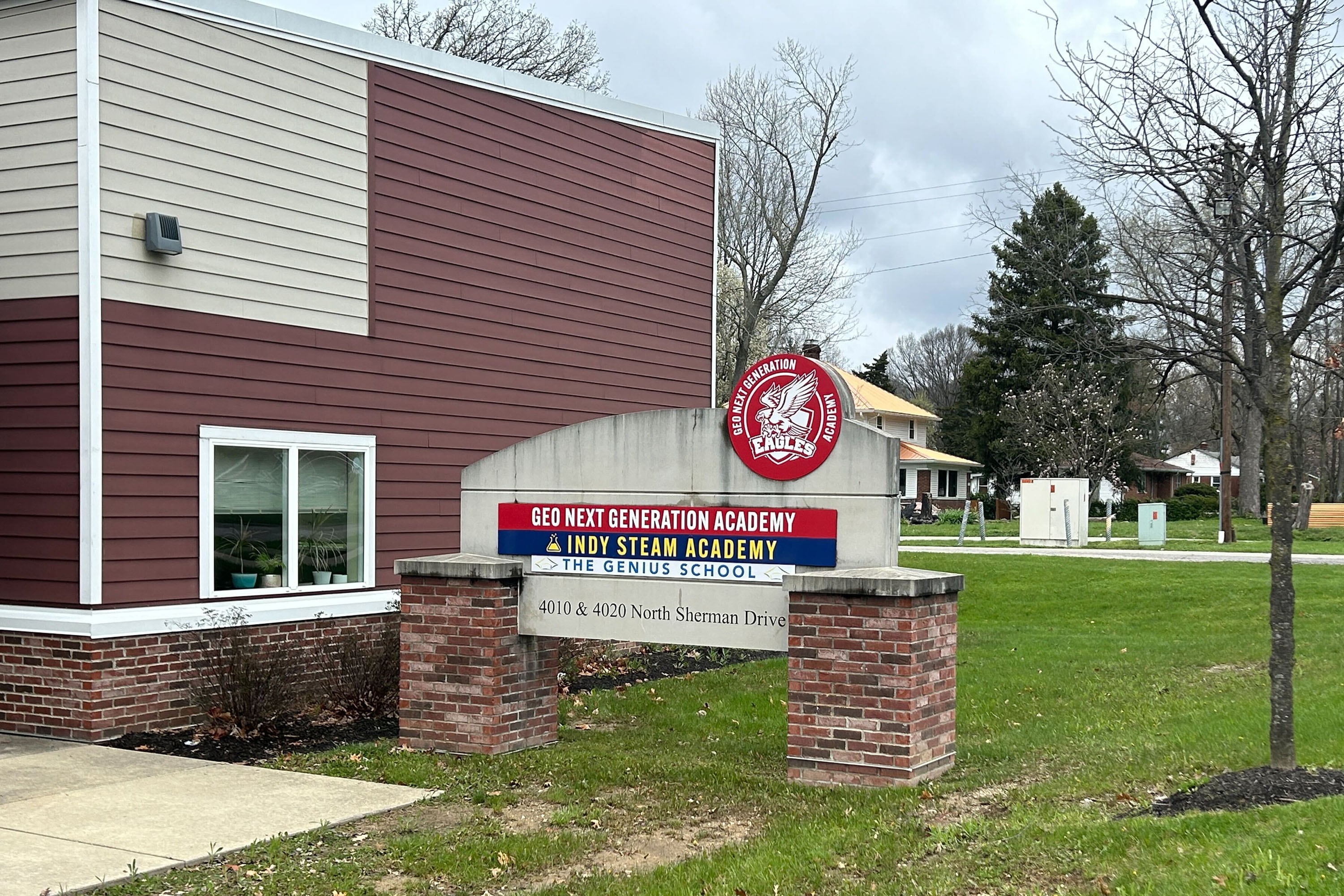Sign up for Chalkbeat Indiana’s free daily newsletter to keep up with Indianapolis Public Schools, Marion County’s township districts, and statewide education news.
An Indianapolis charter school with a checkered track record wants to become a private school that accepts students who use state vouchers.
The Genius School, a K-6 school on the city’s east side, is petitioning the State Board of Education for accreditation as a non-public school. State law requires private schools that accept vouchers to be accredited by the State Board of Education or a recognized accreditation agency.
The board has the item on its agenda for a meeting on Wednesday.
Following a meeting of the school’s board of directors on Thursday, Genius School Head of School Shy-Quon Ely II confirmed that the school is exploring its options as a “non-public” school.
The move is the latest attempt by the school to stay open despite its rocky history. It would allow the school to operate without the oversight of a separate entity — its charter authorizer — tasked with holding the school accountable. The Genius School’s decision also comes as the number of students eligible for and using private school vouchers has grown dramatically in the state.
Originally known as Ignite Achievement Academy, the charter school joined the IPS Innovation Network of autonomous schools in 2017. It was tasked with turning around the underperforming Elder Diggs School 42.
But the district removed Ignite from the network after the 2021-22 school year, citing poor academic performance and high staff turnover.
The school later renamed itself the Genius School and moved locations to a shared space with GEO Next Generation High School. The mayor’s Office of Education Innovation, the school’s authorizer, allowed the school to continue operating under the new name but placed it on probationary status in the 2021-22 school year.
The school then sought authorization from Trine University’s charter authorizing arm, Education One. The Education One board rejected the application in December, citing concerns with enrollment targets and financial projections.
The Genius School’s charter expires at the end of the 2023-24 school year. Ely said the school currently has more than 100 students — up from the 74 the school had last school year, according to state records. Roughly 91% of the school’s population qualified for free or reduced-price meals last year.
A spokesperson for the Office of Education Innovation did not comment on the school’s move to become a private school and accept vouchers, and said only that decisions about accreditation are left up to the state board of education.
In 2017, legislators changed Indiana law to make it easier and faster for private schools to become eligible to accept state-supported vouchers. The law allows the state board to accredit a private school as soon as it begins operating.
Amelia Pak-Harvey covers Indianapolis and Lawrence Township schools for Chalkbeat Indiana. Contact Amelia at apak-harvey@chalkbeat.org.







